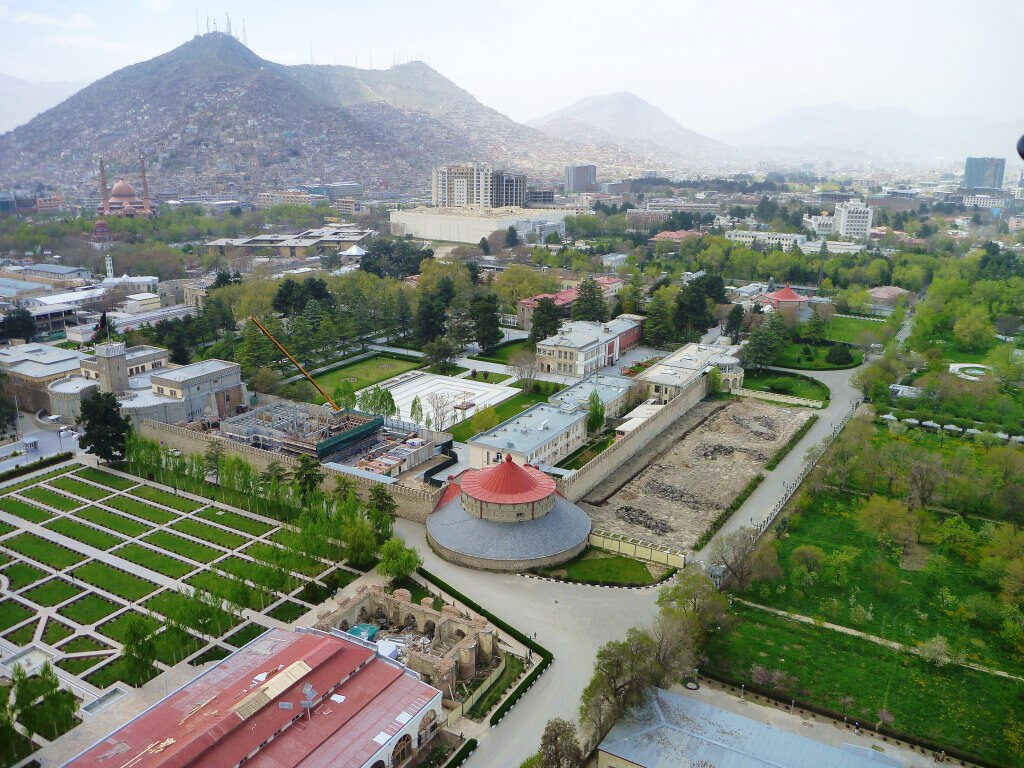There are many ironies in this situation, but personally for me the main one is that Ashraf Ghani started as an academic who studied state collapse and nation building. Back in 2008 I reviewed, for Nature, the book written by Ghani and Clare Lockhart, Fixing Failed States. My review was not gentle. One of my comments was that the authors:
review four examples — post-war Europe, Singapore, the southern United States and Ireland — that, in their opinion, prove that countries confronted with devastation, chaos and entrenched poverty can transform themselves into prosperous and stable members of the global community. Apart from Singapore, however, these are not examples of state collapse. Europe in 1945 was devastated by interstate war; Ireland was poor before its economic miracle but not a collapsed state; and few would consider the United States to be weak.I also slammed them for not being aware of the current literature on state collapse. Notably, they apparently never heard of structural-demographic theory (among other important theoretical developments). They should have read and paid attention to Ibn Khaldun (more on this below).
And I found their specific proposals lacking, well, specifics:
Ghani and Lockhart propose an agenda for state building, but their weak analysis undermines its credibility. They suggest a 'sovereignty strategy' that involves formulating a strategy, then setting the goals and rules of the game, mobilizing resources, allocating critical tasks and, finally, monitoring implementation of the strategy. This generic approach does not suggest concrete policies. For example, the book describes how a strategy formulated in the Indian state of Andhra Pradesh "forced a sobering reading of conditions: corruption, inefficient use of state resources, short-term planning and poor infrastructure. This reading of context enabled participants to embrace change and leaders to set a clear sense of direction." Given such an easy buy-in, one wonders why this approach has not enabled more sides, such as the Maronite Christians and the Shia and Sunni Muslims in Lebanon, to make peace given the many opportunities they have had to 'embrace change'.My review concluded that Fixing Failed States failed as an academic book. Now Ghani failed as the head of the state, together with the state he was the head of.
To be fair, Ghani took on a very difficult, indeed impossible task. Everything that I know of nation building suggests this.
So, is nation-building impossible? Of course not, or we wouldn't have nations. But successful cases of nation-building are always a result of self-help by the national populations and the elites themselves (if readers of this blog have suggestions on counter-examples, I'd like to hear them).
So how would I build a successful state in Afghanistan? (Not that I would ever agree to take on this dirty and dangerous job, for which I lack any practical experience). I actually talked a little about it in my review. For example, one of the important elements that I touched upon was the example of China:
history suggests that external pressure applied to a society may increase internal cohesion and cooperation. National humiliation of China, first from the European great powers in the nineteenth century and then from Japanese occupation during the Second World War, played an important part in its post-war reunification, for example.But Afghanistan was subjected to such an external stress, and from the world hegemon, no less. So one condition fulfilled.
The policy implications of historical outcomes are doubtful. We can hardly subject societies to horrific stresses deliberately.
Another potential problem that needs to be resolved is elite overproduction. Taliban is taking care of that, also. A few of the supporters of the old regime have been executed, according to reports. The main ones ran away. The rest will be demoted and replaced by the Taliban cadres.
In other words, the United States has been nation-building in Afghanistan for nearly 20 years, although not quite in the intended way. The new governing elites, especially the younger ones who fought in the field, rather than directed things from Pakistan, share great asabiya (Ibn Khaldun's term for group solidarity). They are also consolidated by their religion (which is another important factor, according to Ibn Khaldun and modern social science). The previous regime, led by Karzai and Ghani, has been thoroughly discredited as corrupt and dysfunctional. Finally, don't forget the war fatigue factor. After 20 years of social and political instability the overwhelming majority of the population just wants it to end, even though many may not like the harsh version of Islam that Taliban will impose. This, clearly, explains why the take-over by Taliban was so rapid and, to a large degree, with so little resistance. In short, I fully expect Taliban to be successful in building the new state in Afghanistan. We may not like it, but we will have to live with it.
Peter Turchin is a Professor at the University of Connecticut, External Professor at the Complexity Science Hub-Vienna, and Research Associate in the School of Anthropology at the University of Oxford. He conducts research on the cultural evolution and historical dynamics of past and present societies. He is the author of seven books, including War and Peace and War (2005), Secular Cycles (2009), and most recently Ultrasociety (2016) and Ages of Discord (2016).




Afghanistan finally liberated from a regime that imposes mandatory face coverings, destroys statues, and promotes the genital mutilation of children
Love it!